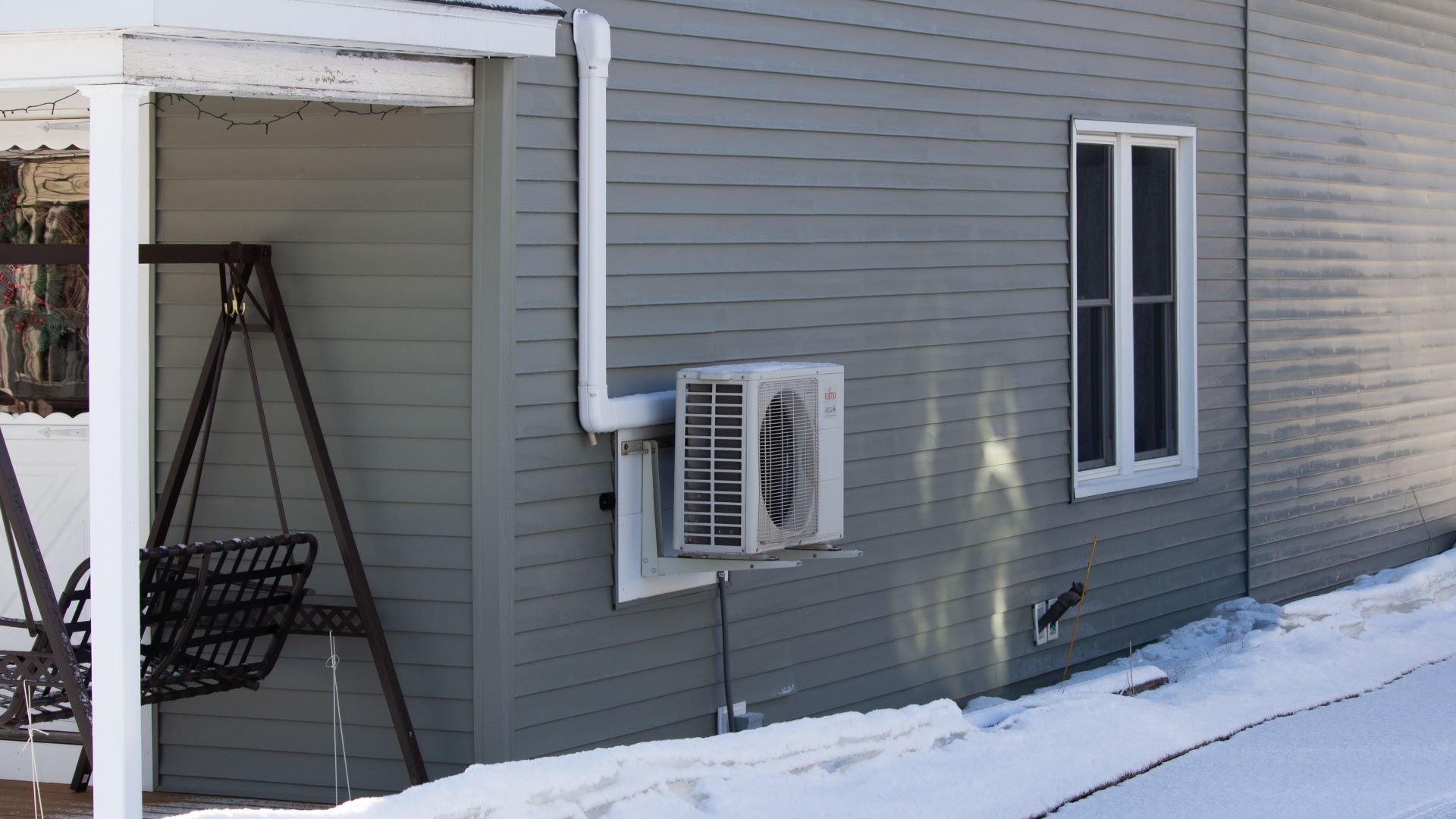Maine wants to install hundreds of thousands of electric heat pumps in the coming years to reduce greenhouse gas emissions and lower home energy costs. As we learned in my series Hooked on Heating Oil, Maine is more reliant than any other state on that pricey, carbon-intensive fuel.
Heat pumps are the state’s favored alternative.
These devices work like air conditioners or refrigerators to provide heating and cooling year-round with very high efficiency — meaning you get out much more energy than you put in.
State officials have said heat pumps’ performance in the coldest weather has vastly improved over the years and, with it, public trust in using this technology in a climate like Maine’s.
But some are still skeptical. I heard from many folks while reporting my heating oil series who said they were dismayed by their heat pumps’ effect on their electric bills, or who were still in the habit of switching back to their fossil fuel or wood systems below certain temperatures.
A newly published commentary in the journal Joule provides further evidence that heat pumps are much more efficient in the cold than some may think. Researchers dug into real-world heat pump performance data to find that below freezing, and even into the low teens, heat pumps were far more efficient than fossil fuels or traditional electric resistance heat (e.g. baseboards).
The commentary’s authors are from the architecture school at Ulster University in Northern Ireland and the Regulatory Assistance Project, a global nonprofit that works with regulatory agencies on decarbonization and energy policy issues. They analyzed findings from a dozen heat pump field studies by government agencies, academic institutions and energy think tanks in multiple countries.
While it’s true that heat pump performance declines as temperatures get colder, the researchers wrote, users will almost always still get more heat for their money from a heat pump than they will from other fuels.
Many advocates I talked to for my heating stories said that Mainers may want to keep a back-up heating system to switch from their heat pump when temperatures and performance drop too low. This new study said a back-up system may only be truly useful when temperatures hit the low teens or below.
“This suggests that concerns over the need for back-up heating during mild cold climate conditions may be unfounded and the role for hybrid systems may be limited,” they wrote, also noting that a quality design and installation are key.
Remember that when calculating your costs from different heating fuels, it’s not just about the extra you may pay for electricity to power your heat pump on a monthly basis, but even more so about the hundreds you won’t spend on oil or gas on an annual or seasonal basis as a result.
If you want to read more about the details of the study, check out this piece in Canary Media. And stay tuned — cold-weather heat pump technology is still continuing to improve.
A note about climate attribution science
As we weather Hurricane Lee this weekend, remember this rule of thumb: We can’t know for sure (without rigorous academic study) that any one weather event was directly caused by climate change. But we can and do know that climate change is causing events like this to become more likely and intense.
Increasingly, scientists are producing rapid-response studies about individual droughts, storms, floods, heat waves, etc. to show the extent to which they would or would not have been possible in a world without climate change. These studies model these events in a hypothetical world without our inflated carbon levels, and compare that to what really happened, to gauge the influence.
The Pacific Northwest’s deadly “heat dome” in 2021, for example, was found to have been “virtually impossible” to have occurred but for human-caused warming. More recently, a similar study found that the wildfires in Eastern Canada that sent smoke billowing across the Northeast and Upper Midwest this year were more than twice as likely to occur thanks to climate change.
We may or may not see a study like this for Lee. “Even rapid attribution studies require the attention of several researchers working flat out over several days, at the very minimum — it is not currently possible to do this for every major weather event,” says a guide for journalists published by World Weather Attribution (WWA), a scientific group based in Europe (see page 9 of this PDF).
But even without a detailed analysis, we can say for sure that climate change — driven by human activities — is increasing the likelihood of large, intense, potentially deadly or damaging hurricanes and tropical storms in the Atlantic. This is due to increased rainfall, warming oceans and sea level rise, according to WWA. In general, the more an event has to do with warm temperatures, the clearer its “climate signal” will be, scientists say.
“In the North Atlantic, total rainfall from Hurricanes Katrina, Irma, Maria, Harvey, Dorian and Florence were all made more intense (by 4%, 6%, 9%, 15%, 7.5%, and 5%, respectively) by climate change,” WWA’s guide says. The area flooded by Superstorm Sandy was also made larger due to climate change.
See page 12 of this PDF for interesting limitations to our understanding of how global warming is affecting hurricanes like Lee. And check out the U.S.-based nonprofit Climate Central’s Climate Shift Index for daily analyses how climate change may have made local weather conditions more or less likely.







